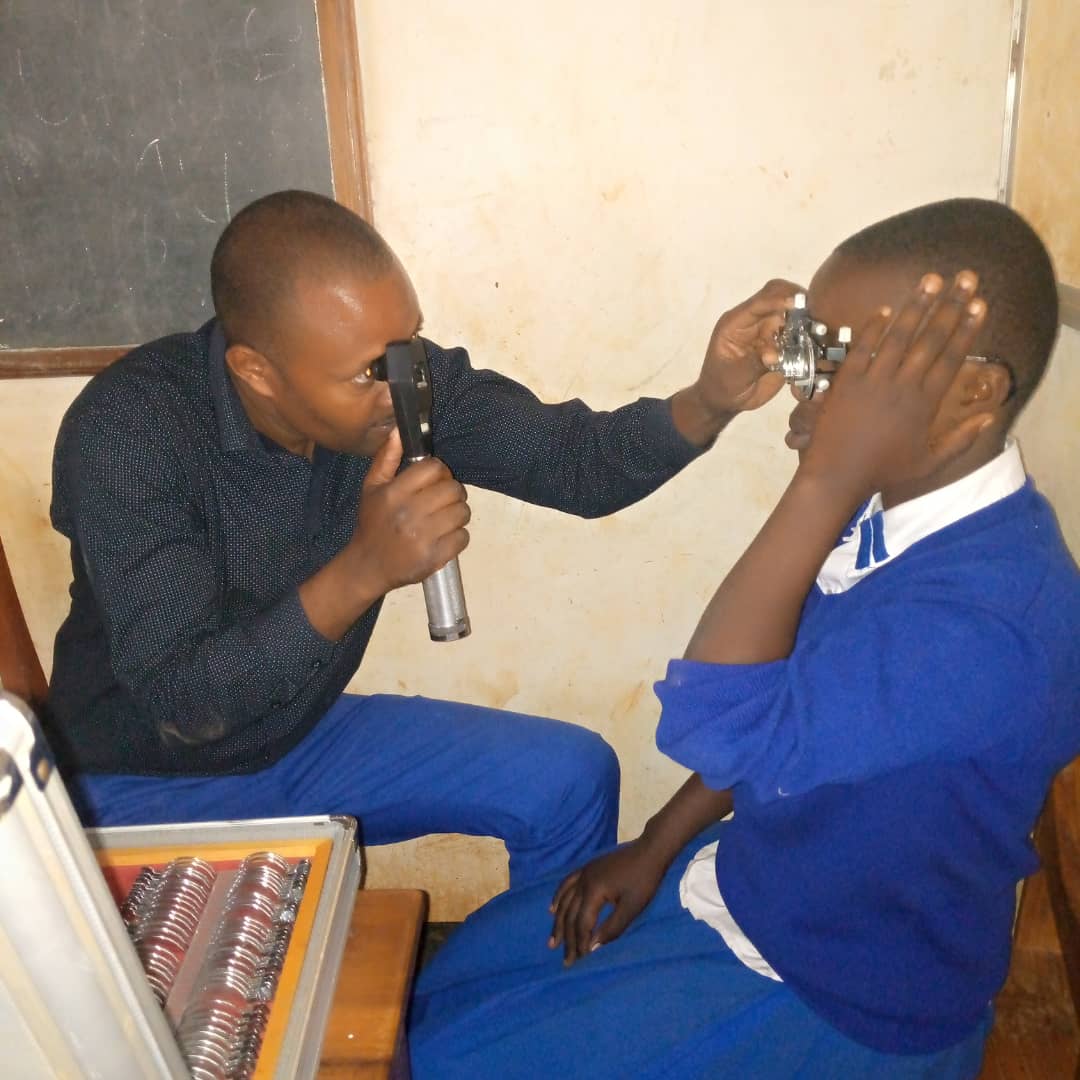Reginald
STRENGHTENING CAPACITY FOR PAEDRIATIC REFRACTION AND LOW VISION IN TANZANIA
While insufficient manpower to deliver eye care services is definitely an issue in many settings in sub-Saharan Africa, it is also true that existing human resources are underutilized. It is sometimes possible to have a great impact simply by offering complementary training to existing eye health staff. As part of a children blindness project (with core funding from USAID), KCCO was able to do just that by sending an optometrist from Mara Region in Tanzania for further training on how to manage children with low vision. It means that families in the Lake Zone of Tanzania no longer need to travel 12 hours or more by road to access low vision services for their child(ren) in other regions of the country. Below is the story of the optometrist in Mara Region who benefitted from a special course on low vision.
My name is Reginald Vumilia and I’m a Tanzanian optometrist based in Mara Region. I completed a course at the Kilimanjaro Christian Medical College (KCMC) as a fellow. The course is focused on pediatric refraction and low vision. Among other subjects, we learned how to take the visual acuity of babies, how to examine a low vision patient how to train low vision clients to use low vision devices, and how to perform pediatric refraction.
I also attended orthoptic classes together with Mmed students. This came as a bonus to my course, and I am thrilled.
I want to express my gratitude to both KCCO and USAID for the opportunity to attend these courses.
It was, for me, a stroke of luck to get this opportunity to work with KCCO and Bugando Medical Centre in their program of finding and screening school-going children and non-school age pupils in the community. I found the exercise interesting and very insightful. It opened my eyes to learn that in the very schools and communities near the hospital where I work, there were many pupils with eye problems, and some with congenital and developmental cataracts, strabismus and high refractive errors.
They were not attended at our hospital that is just a few kilometers from their schools as well as their homes. Unfortunately, some have already developed amblyopia (lazy eye) due to the delay of getting proper treatment. During the screening exercises, we found some pupils in special schools and after surgery they were sent to the normal schools.
The great challenge I faced was that I didn’t have enough knowledge and techniques on how to examine children because the methods to examine and treat children are far different than for adults. In my previous studies, we had a very short course on low vision, however it was not enough to deal with different cases in the field.
Now I can manage to examine children from age 2 months to 3-6 years and above and get a correct diagnosis that leads to proper treatment.
I have learnt why it is necessary to identify and treat children with eye problems at an early age to reduce avoidable blindness due to amblyopia, nystagmus, and strabismus when the eyes are not getting proper and timely treatment.
With the gained knowledge from this low vision training, I can now do even better in helping children and adults with low vision on how they can proceed with their lives, with the little vision they have by giving them optical and non-optical devices, training them on how to use other senses for their daily activities, and by counselling them. I will be going to the schools for the visually impaired more often to see how those children are progressing.
Suffice to say that I learnt a lot and what I can guarantee as my sincere appreciation to you is to go back home and help the young ones and elderly see.
- Reginald Vumilia, Tanzanian optometrist based in Mara Region.





